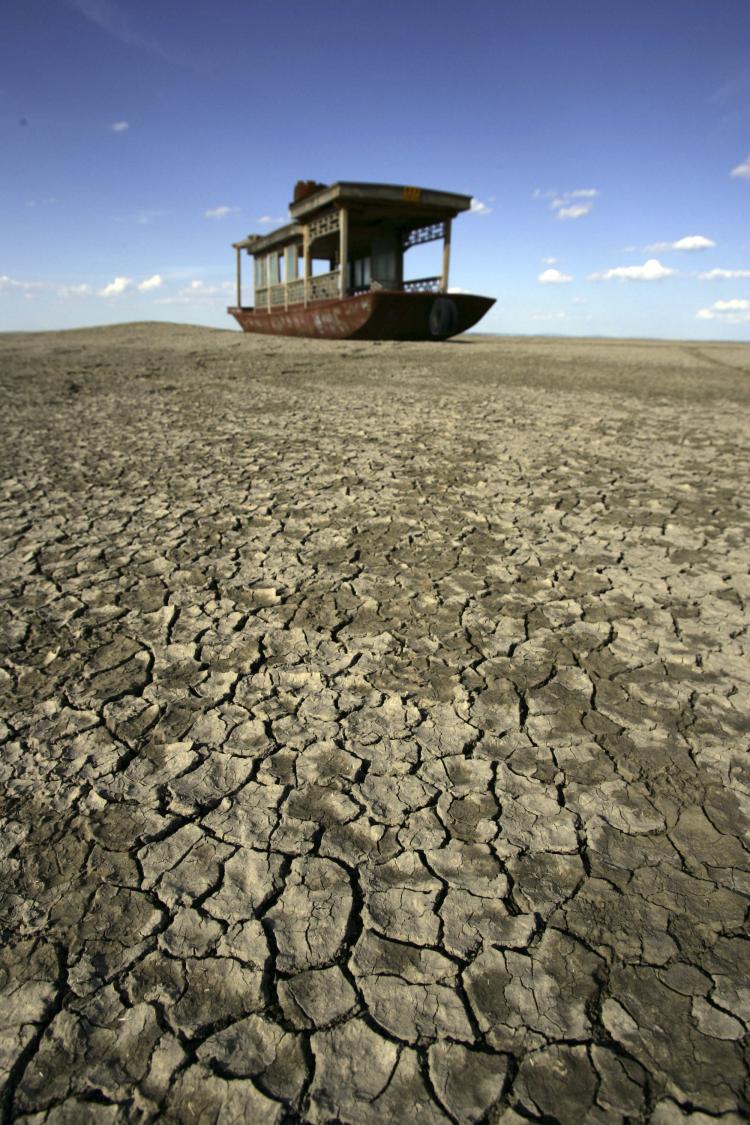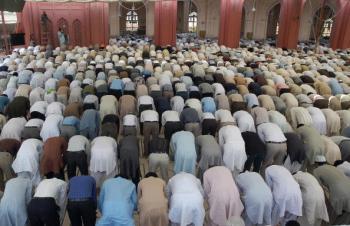Residents in Beijing’s outlying areas are experiencing power and water cuts as resources are siphoned into the capital for the Olympics, sources say. Several Chinese-language chat rooms in the Mainland are buzzing with reports from residents in surrounding areas such as Hebei and Shandong, claiming they have been subject to rolling blackouts and extremely decreased water pressure since the Games kicked off.
One village near Beijing with a population of around 20,000 people, has reportedly been suffering from severe low water pressure for more than two months. Residents said it was so bad that it could take as long as three hours to fill a bucket.
They said they were fobbed off by Chinese officials who claimed that it was a result of old water pipes and old pluming. One user mentioned that 80 percent of people in Datong City, Shanxi Province were experiencing water outages. Also mentioned were Shandong Province and Shijiazhuang and Renqiu City in Hebei Province.
“I’m in Shandong. Our electricity is already cut off from 8 am to 6 pm, it only comes back for a couple of hours during lunch. We’ve gone insane in this hot weather, sitting on the sofa all day doing nothing,” lamented one Mainland chat room user. Other Internet posters said Shandong Province were experiencing outages from early morning until late evening, with only a few hours access around lunchtime each day.
Shandong Province, also home to around 10,000 Korean businesses, makes up close to 25 percent of China’s Korean business population, according to a report in the Korea Times August 10. The firms are currently suffering from an unprecedented shortage of electricity and power transmission in several major cities, the report said. The newspaper added that Chinese authorities had told businesses that they were considering rationing electricity in other areas to supply extra power to Beijing.
Samsung Electronics is currently suspending their printer production plant in Weihai three days a week due to insufficient power, while a Doosan Infracore plant in Yantai received notification at the beginning of the month that they would lose power four days a week during the Olympics.
Beijing now has 38 golf courses that require daily irrigation, more than 600 hectares of Olympic Forest Park that requires a vast amount of water, and a huge variety of massive water fountains to serve as tourist attractions.
Beijing already has an over-extended water supply, and with an estimated 30 percent increase with an influx of Olympic visitors, the regime has struggled to provide solutions. The fast-tracking of a segment of the US$60 billion South-North hydro-engineering project lagged behind and the regime was forced to focus their efforts on the northern-most leg of the project—forcing neighbouring Hebei and Shanxi provinces to ration “back-up” water to supplement river and rain sources.
The project has targeted over 300,000 Chinese citizens with resettlement and intends to create three man-made rivers to carry 40 billion cubic meters of water from Southern China to Northern China. The regime plans to make alterations to the Imperial Grand Canal built in the Sui Dynasty nearly 1500 years ago and cut both tunnels and canals into the Tibetan plateau. It also plans to carry more than 150 million cubic meters of water from the Yellow River to a dried up lake bed south of Beijing.
The Yellow River which has been a central, life-giving artery for the Chinese people since ancient times, has currently become so over-used that it sometimes runs dry before reaching its estuary on the East Coast.
The scheme has piled pressure on Hebei Province, sundering it with 309 km of canals and pipelines. The province supplies Beijing with approximately 80 percent of its water, despite having suffered from a decade-long droughts and bring one of China’s most water-lacking provinces.
China’s regime has also been blamed for poor construction blueprints that were hastily designed, resulting in engineers often striking underground water that they did not anticipate—then simply pumping the water away, causing nearby wells to dry up. Several wells in Hebei are currently at depths of up to 120 meters, nearly double that of a decade ago.
In rural Baoding City, an area which has been crossed in several places by the project, as many as 31,000 residents have lost both land and homes, according to the city’s water office. In September, a Baoding City official remarked that local farmers were angry because bridge construction to aid crossing the canal had been repeatedly delayed while ruined irrigation systems remained unrepaired.





